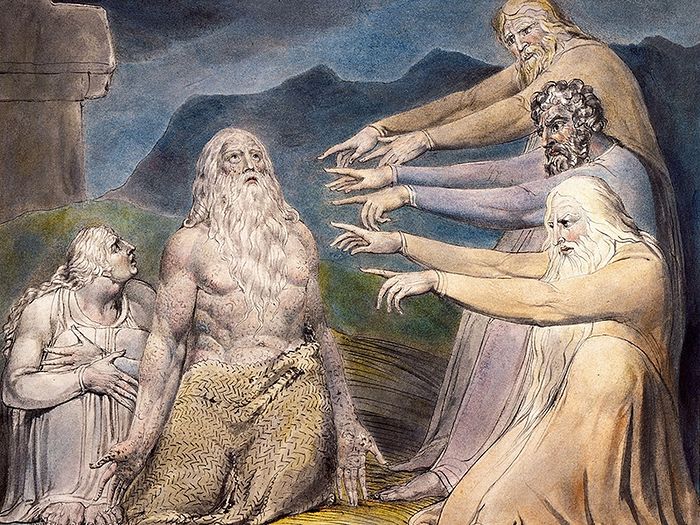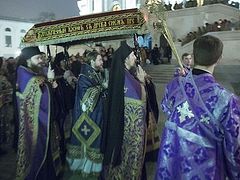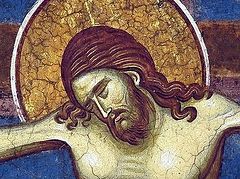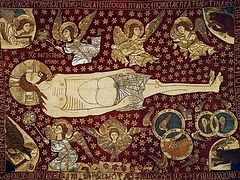 Job is denounced by his friends. An illustration by William Blake
Job is denounced by his friends. An illustration by William Blake
“Man is a cross too.”
Patriarch Pavle of Serbia
In their walk through Great Lent, trying to overcome trials and temptations, Christians seek the right direction towards the main goal—the Radiant Resurrection of Christ. And not only during Great Lent but also throughout their lives everyone tries to get to know the outward and the inward worlds, and risks falling into the “black holes” of sin and apostasy, exposing the “blank spaces” of their souls.
According to Patriarch Pavle of Serbia, “The Lord has set us the tasks that each one of us should carry out in the family, society, the Church and among the whole of mankind.” But how can we know what tasks the Lord has given us, which direction we should take, who we should go with and where we should stop?
Not only do people face difficulties in knowing the external world, there are also serious problems with comprehending the internal. Modern psychology even uses such terms as “traps” and “labyrinths of the psyche”, “reefs of neuroses”, and “depths” and “strata of the subconscious.” What should Christians do in order not to lose our way in mazes, not to get into traps, to bypass reefs and not to drown in the deep of the subconscious?
All of this looks like a “crossword puzzle” given us by the Creator, which we are expected to “solve”. But how should we solve it? What do we need to begin with, and how can we avoid “black holes” and fill in “blank spaces”? What or Who is the “key word” that will help us “solve” it?
In a general sense, “crossword” is composed of two words (“cross” + “word”) and means a “crossed word game.” But we can also understand it theologically, as “the Word of the Cross”, “the Crucified Word”, “a word about the Cross.” It is no longer a banal puzzle with its “down” and “across” lines—it is a word about the Cross… Unto us which are saved it is the power of God (1 Cor. 1:18). He is the Clue to the mystery of the Cross of the Christians.
Now it is clear how we should begin “solving” our “crossword”. The Christian path to knowledge is love. As His Holiness Catholicos-Patriarch Ilia II of All Georgia said, “The spiritual Cross of Christians consists of love for God that extends vertically and love for neighbors that extends horizontally.”
“We should take note of the fact that every human being on his walk of life must raise his own cross. There are countless numbers of crosses, yet only my cross heals my wounds; only my cross will be for my salvation; and it is only my cross that I will bear with the help of God, for it has been given to me by Him,” says Archimandrite John (Krestiankin).
In other words, by taking someone else’s cross you don’t live your own life, you risk falling into “black holes” (snares and traps set against our salvation), and don’t carry out the tasks given you by the Creator, having failed to understand both your inward world and the Divine realm.
“This is a manmade cross, and bearing such a cross results in a great fall,” says Fr. John (Krestiankin).
The example of Patriarch Pavle of Serbia, who used to write with an ordinary lead pencil in a student notebook and erase with an ordinary eraser, is very significant.
“Why do you use an ordinary pencil, Your Holiness?” the noted poet Matija Beckovic, who has a large collection of expensive and unique fountain pens, once asked him.
“To erase and correct what can be corrected. By erasing unnecessary things you repent… But what cannot be corrected will never be rubbed out with any eraser,” the primate replied.
We can err on our walk of life. The main thing is to stop in time and correct our mistakes. The models we ought to follow are the great men of prayer and intercessors for the whole of humanity, who corrected mistakes by tears; strugglers for piety and ascetics who did it by labors and sweat; the martyrs and confessors—by suffering and blood; and all together—by repentance, humility and love.
“That is, your cross can be transformed into a salvific one provided that you follow Christ with it,” Fr. John (Krestiankin) said.
But why is it that many are called, but few are chosen (Mt. 22:14)? Why do many not hear the words of the Savior: If any man will come after Me, let him deny himself, and take up his cross, and follow Me (Mt. 16:24)? Because “the true source of genuine knowledge—love—is running dry,” as Fr. John (Krestiankin) said. True Love was crucified on the Cross. So, many of those “called” don’t want to be “chosen” beside the Cross and walk the path of the Cross.
“After all, if we depart from the truth [of the Cross of Christ.—Auth.] just by an inch, we will move miles away from truth and honesty [of self-knowledge.—Auth.],” St. Nikolai (Velimirovic) of Zica said.
Thus, many people keep wandering around the “black holes”, leaving the “blank spaces” in their souls. At best they live someone else’s lives, bearing someone else’s crosses, “solving” someone else’s “crosswords” without getting to know themselves; at worst they fall into traps, mazes, and chasms, which results in great falls.
In order to avoid all of this, it is necessary to ask Him Who has given us this mission—the Creator. And there is a universal law for this.
“The story of Job is a lesson for all men. When a man is rich, learned and happy, God does not answer. When a man is on a dung hill, abandoned by everyone, then God appears and Himself speaks to him. But the man only listens and cries out: “Lord, have mercy!” Only the measure of abasement varies,”1 as St. Nektary (Nectarius) of Optina said.
On a dunghill and rejected by everybody: This is a Christian walking the path of the Cross, knowing the agony of the Cross through experiencing his own, and getting to know Him Who is crucified on this Cross. And at this point he comes to understand Who can really give answers to the questions and tasks of God. The Lord alone is able to reveal all the mysteries of the universe to man. And man must hear these answers. Our Lord Jesus Christ said that He Himself is the perfect Answer to all the questions.
But even after standing on the right path of salvation, we often fall beneath the weight of our cross, lose heart, grumble and say things we shouldn’t; for he wist not what to say (Mk. 9:6). And the Much-Suffering Job should become our role model, for he repented of what he had earlier said concerning the meaning of his suffering. “In point of fact, Job was guilty before God because he had underestimated the greatest happiness and good of suffering, which truly brings people to spiritual perfection in God” (Pyotr Malkov, Associate Professor of St. Tikhon’s Orthodox University of Humanities, Moscow).
That is why the Lord’s Cross is not only the place where man gets to know himself; it is also the place where he gets to know the mystery of Christ. And getting to know God’s mystery means participating in it and reaching our destination—the Radiant Resurrection of Christ and the life of the age to come. Amen.



